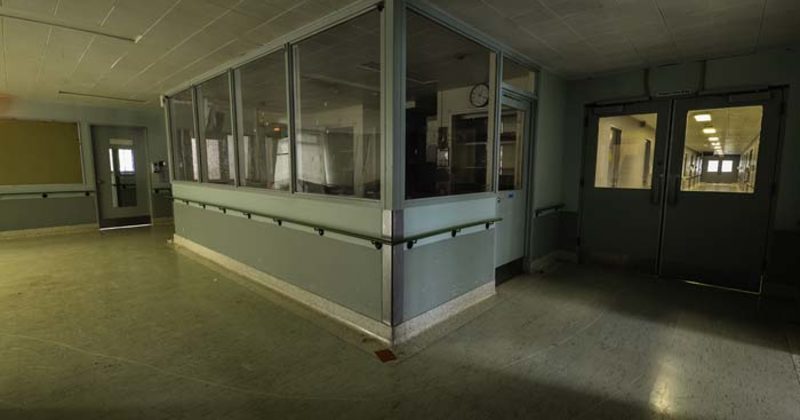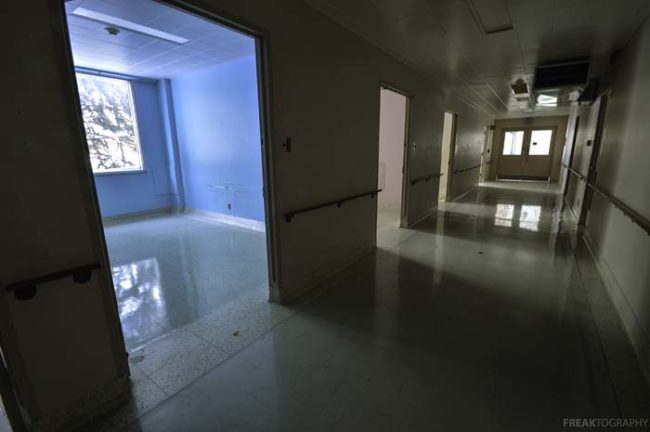An Open Letter to Mental Health Services in My Community

When You Don’t Know What to Say
June 8, 2018Trying New Things
January 5, 2019An Open Letter to Mental Health Services in My Community

On June 14 and 15, 2018 I took part in ASSIST put on by CMHA Windsor-Essex . It is a suicide prevention program and I will forever be thankful to my employer for supporting me in giving me the two days off to take part in such important training that everyone in every community should take. In the training were mental health workers, first responders, clergy, students and blue collar workers. It was an intense couple of days and really brought painful memories to the forefront but I was absolutely ready to take this next step in my efforts to bring about mental health awareness and improve services. During the first day of training I broke into a cold sweat when I realized that it terrifies me to think of ever having to seek help through the Ouellette campus of Windsor Regional Hospital. It spurred me to finally write a letter detailing some of my experiences with mental health services in our community. I have decided to post it in its entirety below:

June 23, 2018
Dear Service Providers Involved in Adult Mental Health Mapping for Windsor/Essex
I am writing to you for a few reasons, the first being to thank you for including in the process of mental health planning in Windsor-Essex region. At the last meeting I felt very validated, heard and appreciated as an individual with lived experience by several people in the group. Bolstered by the recent meeting I would like to share with you some observations/concerns and suggestions that I have learned along my path to mental wellness. In the past 7 years I have been hospitalized for mental health reasons on three separate occasions with the last and most extensive stay being in 2015.
Take Suicidal Feelings and Actions Seriously:
There should be no time when an individual proclaims they are feeling suicidal that the person is turned away from the hospital due to overcrowding. A proclamation of feeling suicidal with a plan should be assessed on its merits and if the person is deemed a risk to themselves or someone else they should be given the protection and safety that they require. The decision to whether they require hospitalization should not be based on beds. In 2011 I went to the hospital grudgingly as my husband and Psychologist were very concerned for me. I admitted to the psychiatrist on duty that I was suicidal, my Psychologist provided information about my mental state, and I shared my plan. Not only was I sent home, but she gave me back the bottle of pills that I intended to use to suicide.
Make All Inpatient Mental Health in One Location:
Emergency and intensive hospital based mental health services should be in ONE location and that location should be the Toldo Neurobehavioural Institute at Hotel-Dieu Grace Hospital (HDGH). When an individual is in crisis and requires assessment, they need to know that they won’t have to move to different locations should they need a longer stay. The reasons mental health beds at Toldo at Hotel Dieu are superior to Windsor Regional Hospital (WRH) will be explored below.
Maintaining Dignity:
WRH psychiatric units feel more like a prison than a place of hope. From the rundown furniture to having to share a room with someone that you feel poses a danger to you. Being on the third floor you are unable to get time outside – even if you are hospitalized long term. I suffer from severe central sleep apnea. Without my CPAP machine my brain shuts off up to 80 times an hour. During my last stay at WRH I was denied my CPAP for 3 weeks until I complained to the patient representative.
Nurses at WRH spend much of their time sitting in their office behind the glass and it is very difficult to get their attention not to mention help. They will even see you standing there and refuse to talk to you because you are not their patient. If they do come to talk to you it is made very clear they are very busy and do not have time to waste with you. There were shifts where my nurse didn’t speak to me once and yet in my hospital records it indicates that contact was made on every single shift. On one occasion I was very thirsty from being on Lithium and didn’t have a way to drink water. I kept approaching the desk and waiting patiently to either be told to go away or be ignored. I spent the day drinking water from the bathroom sink by putting my head under the faucet. Being able to drink water with dignity should be a basic human right.
Food is extremely restricted. If you for some reason do not get what you thought you ordered on your tray you must wait until the next meal time. On one occasion they only gave me a large plate heaped with broccoli. Nothing else. The nursing staff told me there was nothing they could do. You MUST eat in the dining room even if being around crowds of people is difficult for you. Meanwhile in any other part of the hospital everyone is eating in their beds in their own rooms. “Snack time” before bed is demeaning as there is a very limited amount of food available and it is like a mob when the food gets put out. If you are not there right away there is a good chance you will get nothing to eat. Patients resort to stock piling food in their rooms, so they can eat when they are hungry.
During my first hospitalization I attempted to hang myself with a ripped sheet but when I didn’t succeed I changed my mind and went to the nurse’s station to seek help. The nurse assigned to me that day came to my room and proceeded to berate me for pulling such a stunt instead of telling her I was suicidal, and she was mad that now she had to do paperwork. The next day when my husband and I discussed our concerns for how I was treated with administration on the floor we were told that the nurse had done nothing wrong and my request to have a different nurse was denied. For the rest of my stay she just happened to be my nurse every time she was on duty. I know I would not have been treated that way if I was on a regular medical floor. Last year when my son had an unreasonable wait for emergency surgery at WRH our complaints and requests were treated with respect. The therapeutic relationship between patient and nurse is key to people’s recovery and my recovery was compromised by not being listened to and therefore harming the therapeutic relationship.
Take a note from HDGH – private rooms and bathrooms with a shower, not having to degrade yourself by shaving while someone watches you, ability to go outside each day. Activities to feed your mind and soul. Most important – nurses who seem genuinely caring for the patients and where any of them will help you when you need it whether they are your assigned nurse. Never did I feel belittled or demeaned by a nurse at HGDH.
Collaboration:
Individuals hospitalized should be involved in writing a safety plan for their discharge along with family members, friends, clergy, community resources (e.g. Psychologist, therapist – any health professional). The plan should include step by step what each person’s role is in the individual’s safety plan. The two times I was discharged from WRH there was no such plan – one day I was “locked up” and the next day I went home with no formal supports or even coping strategies.
If a hospitalized individual has outside supports from a regulated health professional, with consent that professional should be consulted and part of the ongoing treatment as they will likely be the one to support the person after discharge. Through all 3 of my hospitalizations I made it known that I had a very strong therapeutic relationship with my Psychologist. However, no one sought out information from him and when, with my consent, he tried to contact hospital staff his multiple phone calls were never returned.
Activities:
During my hospitalizations at WRH we primarily sat around watching re-runs on TV or arguing over who got to use the one phone next. We were always told we could go to Occupational Therapy only if we had showered and taken care of our grooming needs. While I understand the reasoning behind such a demand, we are adults. We should be able to choose what we participate in and what we don’t. Someone who is not engaging in self-care should be encouraged even more to get up and do something productive. Unfortunately, at WRH the OT session consisted of colouring in pictures or playing video games. The rest of the time you are left inactive, stewing in your own struggling thoughts.
At HDGH there is a long list of activities you can partake in. There are no ultimatums to participate. While there for a month I took part in horticulture, work out room, daily walks, meditation and so much more. We were enthusiastically encouraged and supported to participate in as much as possible and I credit being so busy and productive with finally starting to recover. I didn’t have time to wallow and ruminate.
Training:
All first responders and hospital staff in ASSIST www.livingworks.net/programs/asist/ which is an evidence informed technique and used all over the province. I believe that if people I encountered through my journey had this training I would have felt more hopeful and willing to ask for help. Through this training people learn how to “keep you safe for now” and could decrease the need for hospitalization of individuals because they really feel heard and know that the people around them are part of a plan to keep them safe for now.
In conclusion, it has taken me a long time to write this letter. It is difficult to re-live moments of my mental health journey that are very painful. It is also hard to condense it into three pages as I have so much to share. However, it is important that people who make decisions know what it is like for those with lived experiences. In the past I worried that what I must share here would not be taken seriously. I have moved past that and now I have only one recurring worry: That should I go into crisis again and require hospitalization that I might be stuck at WRH. I will do anything to avoid having to be incarcerated at WRH again – even if it means lying to those around me and putting myself in danger of suicide. This fact scares me. As a citizen of Windsor, I deserve to know that should I require hospitalization I will be given “outstanding care – no exceptions”
Sincerely,
Tina Szymczak

